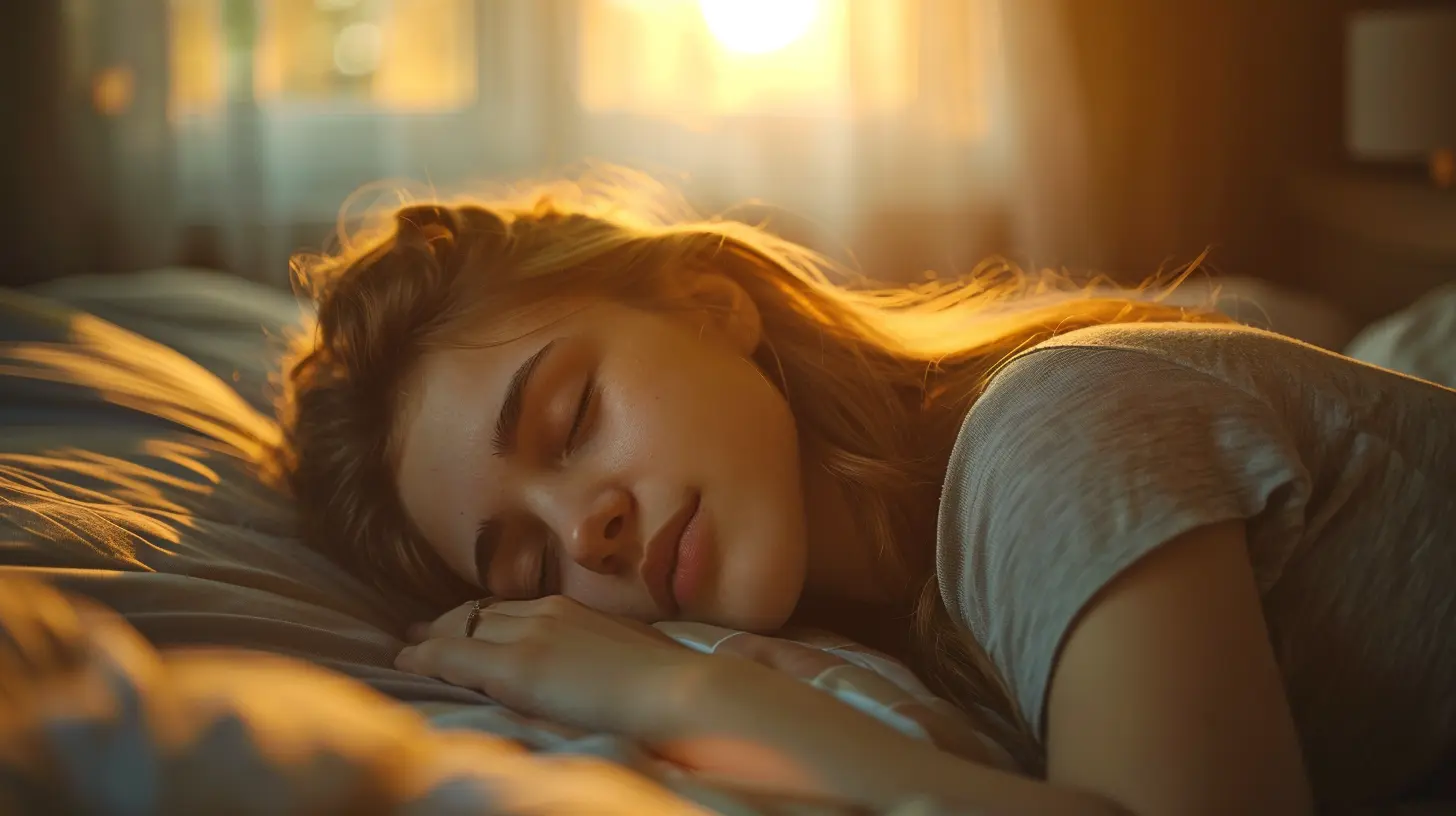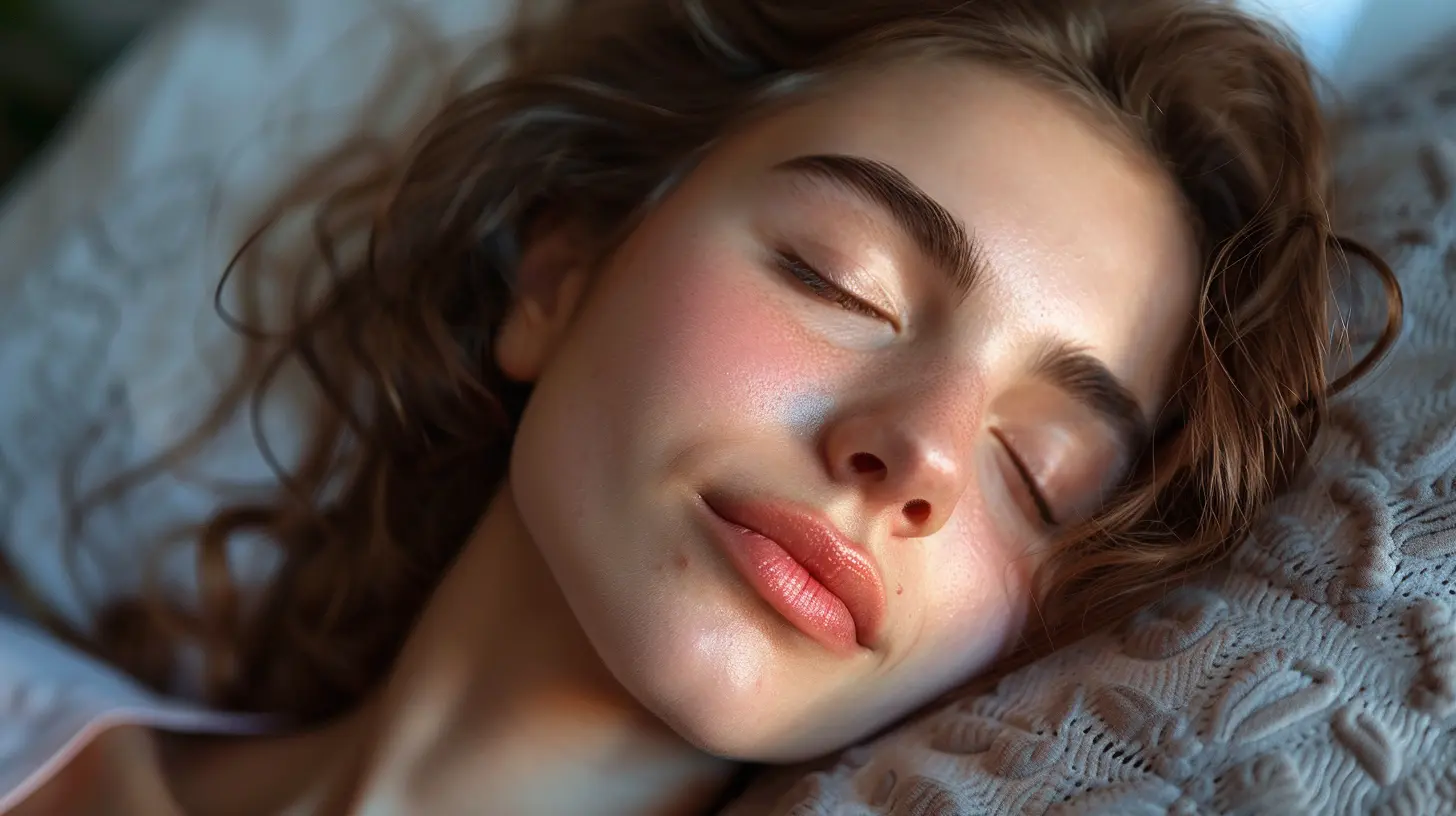Sleep and Anxiety: How to Improve Your Rest
3 May 2025
Have you ever found yourself lying in bed, staring at the ceiling, your mind racing with thoughts that just won’t shut off? If you suffer from anxiety, you know how hard it can be to relax and fall asleep. The truth is, anxiety and sleep are deeply connected—one affects the other in a never-ending cycle. But don’t worry, you're not alone in this struggle, and there are ways to break free.
In this article, we’ll dive into the connection between anxiety and sleep, why it’s so hard to rest when you're anxious, and—most importantly—what you can do to get the deep, restful sleep you deserve. 
The Relationship Between Sleep and Anxiety
Anxiety can make sleep feel impossible, and a lack of sleep can make anxiety worse. It’s like a vicious cycle that keeps spinning out of control.When you're anxious, your brain goes into overdrive, making it difficult to shut down at night. This can lead to insomnia, frequent wake-ups, and restless sleep. On the other hand, poor sleep can heighten anxiety, making you feel more stressed, overwhelmed, and emotionally drained the next day.
But why does this happen? Let’s break it down.

How Anxiety Affects Sleep
Anxiety triggers your body's "fight-or-flight" response. This means higher levels of cortisol and adrenaline, which keep you alert and on edge—exactly what you don’t need when trying to sleep. Your heart races, your thoughts spiral, and before you know it, you’ve spent hours tossing and turning.Some common anxiety-related sleep problems include:
- Difficulty falling asleep – Your mind won’t stop overanalyzing everything.
- Frequent awakenings – You wake up multiple times, struggling to get back to sleep.
- Vivid or distressing dreams – Anxiety can lead to unsettling dreams or nightmares.
- Early morning awakenings – You wake up too early and can’t go back to sleep.
How Lack of Sleep Worsens Anxiety
When you don’t get enough rest, your brain has a hard time regulating emotions. You’re more likely to feel stressed, irritable, and overwhelmed. Lack of sleep also affects your cognitive function, making it harder to focus, solve problems, and manage daily stressors.In short, poor sleep fuels anxiety, and anxiety fuels poor sleep—it’s a frustrating loop, but there are ways to break free. 
Practical Tips to Improve Sleep When You Have Anxiety
Now that you know how connected anxiety and sleep are, let’s focus on actionable steps you can take to improve your rest.1. Create a Calming Bedtime Routine
Your body thrives on routine. A relaxing bedtime ritual tells your brain that it’s time to wind down.Some ideas for a calming nighttime routine:
- Take a warm bath or shower – Helps relax your muscles and soothe your mind.
- Read a book – Preferably something light and positive.
- Practice deep breathing – Try the 4-7-8 technique (inhale for 4 seconds, hold for 7, exhale for 8).
- Listen to calming music or nature sounds – White noise or soft instrumental music can help.
- Do gentle stretches or yoga – Loosen up any built-up tension in your body.
Creating a consistent nighttime routine trains your brain to associate these activities with sleep, making it easier to drift off.
2. Limit Screen Time Before Bed
Scrolling through your phone may feel like a distraction, but it’s actually making your anxiety worse. The blue light from screens suppresses melatonin production, the hormone that regulates sleep.Try to avoid screens at least 30-60 minutes before bed. Instead, opt for a book, journaling, or quiet relaxation.
3. Practice Mindfulness and Meditation
Mindfulness helps calm racing thoughts and keeps you present. Meditation, even just a few minutes before bed, can make a huge difference in quieting your mind.A simple technique to try:
- Sit or lie down comfortably.
- Close your eyes and focus on your breath.
- If your mind starts racing, gently bring your focus back to your breathing.
- Continue for 5-10 minutes.
Apps like Calm, Headspace, or Insight Timer can guide you through effective relaxation practices.
4. Reduce Caffeine and Alcohol Intake
Caffeine is a stimulant, meaning it keeps you alert—exactly the opposite of what you want at night. Try to limit caffeine consumption after 2 PM to give your body time to wind down by bedtime.Alcohol might make you feel drowsy, but it disrupts deep sleep, leaving you feeling groggy and unrested. If you struggle with sleep, try cutting back on alcohol and see if it makes a difference.
5. Keep Your Sleep Environment Comfortable
Your bedroom should be a peaceful, sleep-inducing space. A few tips to create the perfect sleep environment:- Keep the room cool (between 60-67°F).
- Use blackout curtains to block excess light.
- Invest in a comfortable mattress and pillows—your back will thank you!
- Avoid clutter; a messy space can increase stress.
- Use essential oils like lavender to promote relaxation.
When your surroundings are cozy and calm, it’s much easier to fall asleep and stay asleep.
6. Write Down Your Worries
If anxious thoughts keep you up at night, try journaling before bed. Writing down your worries helps clear your mind and makes you feel lighter.A great habit is a "brain dump"—grab a notebook and write whatever’s on your mind. Getting thoughts out of your head and onto paper can help reduce nighttime overthinking.
7. Exercise Regularly
Exercise releases endorphins, which help relieve stress and anxiety. Physical activity also makes it easier to fall asleep at night.However, try to avoid intense workouts right before bed as they can be too stimulating. Instead, opt for morning or afternoon exercise for the best results.
8. Try Progressive Muscle Relaxation (PMR)
If stress is keeping your body tense, Progressive Muscle Relaxation (PMR) can help. This technique involves tensing and relaxing different muscle groups, signaling to your body that it’s time to let go of stress.Here’s how to do it:
1. Start at your feet—tense the muscles for 5 seconds, then release.
2. Move up to your legs, abdomen, arms, and shoulders, tensing and relaxing each group.
3. Finish with your face, tightening your jaw and forehead before letting them relax.
This method reduces muscle tension and promotes deep relaxation, making it easier to fall asleep. 
Final Thoughts
Breaking the cycle of anxiety and poor sleep takes time, but with the right habits, you can improve your rest. Start small—maybe by cutting back on caffeine, practicing meditation, or creating a soothing bedtime routine. The key is consistency.Your mind and body deserve rest. By incorporating these simple changes, you can reclaim your peace at night and wake up feeling refreshed and ready to take on the day.
Sweet dreams!
all images in this post were generated using AI tools
Category:
AnxietyAuthor:

Alexandra Butler
Discussion
rate this article
3 comments
Darby Marks
This article presents such intriguing insights into the relationship between sleep and anxiety! I'm curious about the practical strategies mentioned for improving rest. It’s fascinating how intertwined our mental well-being and sleep quality are—looking forward to exploring these tips further!
May 13, 2025 at 3:52 AM

Alexandra Butler
Thank you for your enthusiasm! I'm glad you found the insights intriguing. The practical strategies for improving rest are designed to help enhance both sleep quality and mental well-being. I hope you find them helpful in your journey!
Erica Monroe
Remember, prioritizing sleep is a powerful step towards managing anxiety. Embrace the small changes, create a calming bedtime routine, and celebrate each restful night as a victory for your mental health journey. You've got this!
May 8, 2025 at 3:27 AM

Alexandra Butler
Thank you for highlighting the importance of sleep in managing anxiety! Prioritizing rest truly can transform our mental health journey.
Leslie McGuire
Understanding the interplay between sleep and anxiety is crucial. By prioritizing rest and implementing calming routines, we can significantly enhance mental health and overall well-being.
May 3, 2025 at 4:18 PM

Alexandra Butler
Thank you for your insightful comment! Prioritizing sleep and calming routines is indeed vital for improving mental health and managing anxiety.



